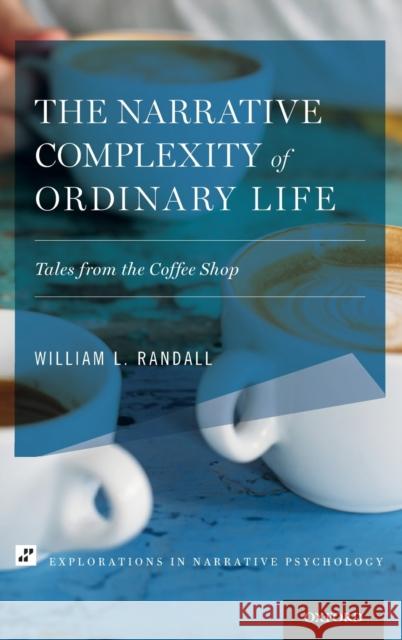The Narrative Complexity of Ordinary Life: Tales from the Coffee Shop » książka
topmenu
The Narrative Complexity of Ordinary Life: Tales from the Coffee Shop
ISBN-13: 9780199930432 / Angielski / Twarda / 2015 / 210 str.
The Narrative Complexity of Ordinary Life: Tales from the Coffee Shop
ISBN-13: 9780199930432 / Angielski / Twarda / 2015 / 210 str.
cena 333,72
(netto: 317,83 VAT: 5%)
Najniższa cena z 30 dni: 306,96
(netto: 317,83 VAT: 5%)
Najniższa cena z 30 dni: 306,96
Termin realizacji zamówienia:
ok. 16-18 dni roboczych.
ok. 16-18 dni roboczych.
Darmowa dostawa!
Our everyday lives are enmeshed in storytelling: the stories we tell about our memories, the people we know, and the world we inhabit; those we tell about our families and communities; and the narratives we encounter in books, movies, and television. Narrative structures how we view ourselves and everything around us.
In The Narrative Complexity of Ordinary Life, William L. Randall shows how concepts central to the study of narrative psychology--such as narrative development and the interrelation between narrative and identity, cognition, and development--are integral to everyday life. He makes the case that all people function as narrative psychologists by continually storying their lives in memory and imagination, as well as speculating on the stories that others may be living, a process that Randall refers to as storyotyping. Relying heavily on narrative, Randall draws from experiences in his own life to illustrate various concepts in narrative psychology. Randall's inquiry also takes him to the topics of gossip, rumor, and the narrative complexity of nostalgia. He contemplates the storied nature of the news, and by extension, history. Randall discusses the nature of spirituality and religion as "master narratives." He also draws upon the work of Dan McAdams to discuss how the stories people internalize and tell to others reveal a great deal about the way in which they interpret and experience the world around them, ultimately arguing that the recurring themes in people's lives shape their personalities.










